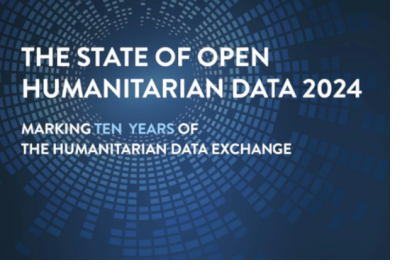As part of their 10 year anniversary, the Centre for Humanitarian Data, under the United Nations Office for the Coordination of Humanitarian Affairs (OCHA) has released a publication reviewing the progress of its open-access data platform, the Humanitarian Data Exchange (HDX), providing insights as to the future plans and contribution needs for the platform.
The report discusses the organization's impact on shifting data sharing in the humanitarian sector to a more responsible and centralized approach, with a focus on open access to data. Humanitarian data is of particular interest to the geospatial and disaster risk reduction communities as it provides valuable insights as to the vulnerabilities of particular groups, the dispersal of displaced persons, and can help inform decision-makers as to where assistance might be needed. These included datasets concern subjects such as food security, health facilities, population, infrastructure, and many more.
Since 2022, data on climate impact, and climate hazards were added to the HDX data grids as a subcategory to increase awareness and track the availability of this data across countries, and now contains a number of country and event-specific datasets. However, looking forward, the Center for Humanitarian Data recognizes that in order to ensure this data is continually useful, it requires several contributions to keep it up to date. That is why they are calling on their partners to help generate and share data that is missing or currently incomplete, including that which pertains to climate impact data for the past ten years. To continue being a central resource for humanitarian data, including those that relate to hazards, disaster risk reduction, and the predicted humanitarian impact of disasters, HDX will be utilizing advances in emerging technologies and evolving to meet the diverse needs of the humanitarian community.

